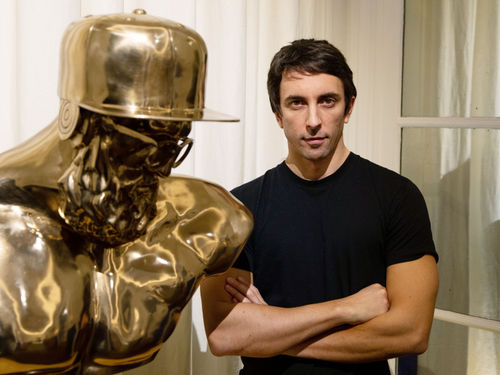Léo Caillard
传记
Artist Leo Caillard toys with our relationship with time. Through a blend of different periods and anachronism, he prompts us to reflect on the present in relation to our past.
Inspired by science and the concerns of our contemporary society, he invites us to take a fresh look at our era, open to history, in order to rethink our future.
Leo Caillard was born in Paris, France in 1985. He belongs to this new generation of artists associated with the significant changes that have been taking place since the 2000s with the dawn of the digital age and the new concerns of societies.
Caillard's work marries his passion for new technologies and science. In the 2010’s he began to produce his first works to gain recognition in the art world, an initial series of images, ‘Art Game’ raising the question of digital’s place among classical art in museums.
Since 2013, Leo Caillard has produced many sculptures in the same spirit of dialogue across time. He expanded the concept of marble and bronze works wearing clothes through the aesthetics of the classic bust modified by adding contemporary accessories. The ‘Hipsters in Bronze’ series conveys these creations that have quickly earned a place within private collections and exhibitions. Through the gesture of dressing statuary in the Louvre, that may perhaps at first seem merely humorous, Leo Caillard raises the question of our social codes and our own representation as individuals.
Recently, Leo Caillard has been working on new creations based on light interacting with stone. His meticulous and scientific hallmark is exposed in poetic and subtle works where the conceptual creation seeks to emphasise the dialogue between solid matter and abstract matter: solid and hollow, tangible and quantum.
“I started to explore the topic of antiquity in art in 2010. I have great pleasure in seeing that this discourse brings big names in contemporary art in its wake with major exhibitions like Hirst at the Venice Biennale or Koons with his Gazing Balls. The world that we know is changing and consumer society such as we are experiencing today, based on the 20th century hyper-growth model, will represent the distant past in future decades. For this reason, in order to imagine a new society, richer in meaning and beauty, it is essential to look to our Greco-Roman roots for new inspiration. This artistic movement of which I am a fully-fledged member might be ‘neoclassicism’ and I think that it has not finished developing its dialogue between periods to lay the foundations for a better future.”

